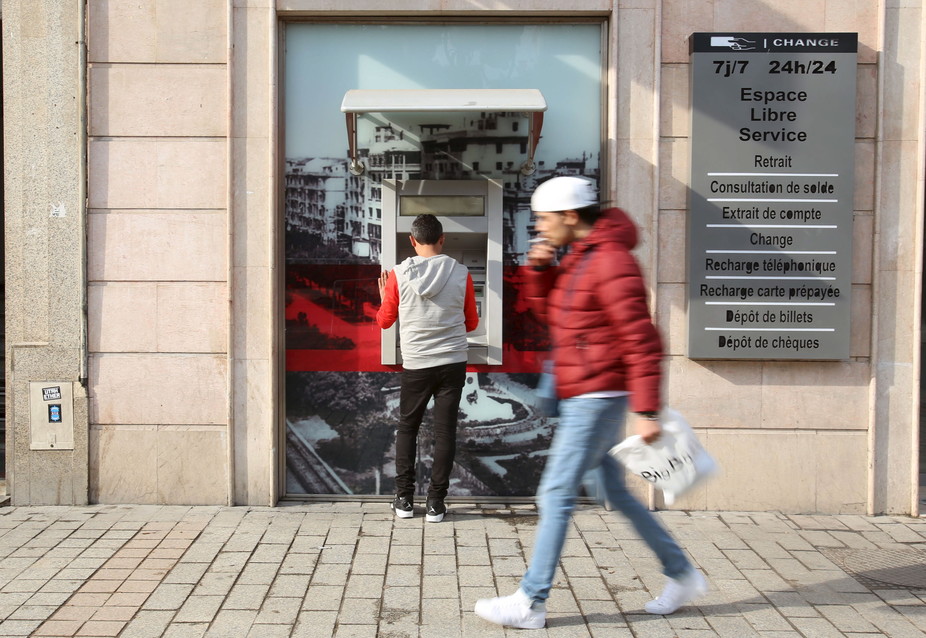“Work, freedom, dignity” was one of the many slogans that Tunisians chanted in 2011 to vent their frustration with the government of president Ben Ali, which they accused of having looted the country for over two decades.
In less than four weeks, Tunisia’s “Jasmine” revolution forced the president to flee, and his regime to tumble.
After the upheaval, Tunisians found their state intact but crippled with debt, and their society – with its rate of youth unemployment hovering at 40% – at the mercy of a wavering economy based on the highly volatile tourist trade.
On May 22, just weeks after Tunisian authorities had frozen the assets of eight businessmen suspected of corruption, the government launched a massive anti-graft operation called Main Propres (Clean Hands).
The initiative was in response to the fragility of the Tunisian economy, where public and private banks make up almost 50% of the country’s financial market capitalisation. This may be one reason why the Central Bank of Tunisia (BCT) is currently considering a raft of bills aimed at freeing up the capital account to stimulate foreign investment and develop investment by residents abroad.
Troubles and woes of Tunisian banks
Weak institutional governance existed well before Tunisia’s 2011 political uprising, and there have been several prior attempts to restructure the banking sector.
In 1994, a law was passed to reorganise the stock market under the aegis of financial backers – the International Monetary Fun, the World Bank and the European Union – whose loans were contingent on reform.
In 2005, a piece of legislation on the reinforcement of financial security sought to better balance the legislative framework and improve corporate governance.
Despite these efforts, governance in the banking sector continues to suffer from deep-rooted structural problems. As a 2009 Fitch Ratings report, “Corporate Governance: The Tunisian Perspective, explains:
Corporate governance practices in Tunisia are still immature in spite of successive institutional reforms. (…) The main obstacle to the spread of good corporate governance practices is the ‘family-like’ (closed capital) structure of most Tunisian businesses, in which the founders and shareholders continue to exercise management roles.
The need to promote banking governance becomes obvious when looking at certain statistics. The high number of non-performing loans made by public banks, for example, and the significant proportion of bank board members who also hold political office.
The revolution didn’t help
The Tunisian revolution opened up some promising prospects. In theory, a new democracy, freedom and good governance should have encouraged entrepreneurship and investment.
Instead, economic growth stagnated in 2011, causing unemployment to rise and increasing the need for external help to cover the state’s budget deficit.
Nor have the terrorist attacks that have plagued Tunisia over the last few years, aggravated by episodes of violence in neighbouring Algeria and Libya, helped the situation.
Issues from pre-2011 Tunisia have also worsened, including the rise of the informal economy, contraband and the spread of corruption.
Thanks to the Tunisian Central Bank’s post-revolution monetary policy, banks have had access to the liquidity necessary for funding the country’s economic activity. The crisis has this had a limited effect on Tunisian businesses by lightening their financial obligations and the Tunisian banking system has been able to maintain its reliability.
Weighed down by multiple problems
But banks themselves remain fragile and under-performing, shackled by high levels of unproductive debt even as they continue developing new products and services, such as remote account access and smartphone apps. Other problems include weak capitalisation, poor quality assets and a lack of adequate funds to cover the risk of default.
There is no doubt that Tunisia’s high level of public debt – projected to reach 58% this year – also plays a central role in the country’s troubles.
What’s more, account withdrawals have reached new highs, leaving the banking sector with a massive liquidity gap. Since the revolution, private citizens and companies have favoured cash or investments over keeping their money in regular bank accounts.
This structural deficit required the intervention of the BCT in the form of sizeable capital injections that increased its credit exposure and led to a significant fall in international reserves.
The BCT reduced the compulsory reserve requirement for deposits of less than three months from 12% to 2%, and from 1.5% to 0% for deposits between three and 24 months, allowing a reduction in the ordinary current account balance of banks overseen by BCT.
Ordinary citizens pay the price
As a result, the banks have fallen back on mortgages and loans for private citizens.
At the same time, they are demanding increasingly high-risk premiums, and therefore also higher interest rates. Caught between their plummeting purchasing power and staggeringly high interest rates on bank loans, ordinary Tunisians are paying the price.
According to the Tunisian national institute of statistics, in May this year inflation rose to 5%, the cost of food and drink is up 5.2% and clothing prices have increased 8.4%.
Given this alarming situation, existing regulation efforts are coming up short. Among other policies that could improve their governance, banks need boards with competent, independent and responsible directors, strategic visions and the courage to make appropriate decisions at critical junctures.
Directors should be required to give guidance and exercise the control necessary for banks to run properly, while adhering to the regulatory requirements of the countries in which they operate.
The road back to balance will be long for Tunisia, a small country with limited resources. Its own political instability and turmoil, combined with the threat of terrorism on its doorstep, make the task even more problematic.
Translated from the French by Alice Heathwood for Fast for Word.
 Ben Hamadi Zouhour does not work for, consult, own shares in or receive funding from any company or organisation that would benefit from this article, and has disclosed no relevant affiliations beyond the academic appointment above.
Ben Hamadi Zouhour does not work for, consult, own shares in or receive funding from any company or organisation that would benefit from this article, and has disclosed no relevant affiliations beyond the academic appointment above.



 OCBC Raises Gold Price Forecast to $5,600 as Structural Demand and Uncertainty Persist
OCBC Raises Gold Price Forecast to $5,600 as Structural Demand and Uncertainty Persist  Asian Markets Wobble as AI Fears Rattle Stocks, Oil and Gold Rebound
Asian Markets Wobble as AI Fears Rattle Stocks, Oil and Gold Rebound  US-India Trade Bombshell: Tariffs Slashed to 18% — Rupee Soars, Sensex Explodes
US-India Trade Bombshell: Tariffs Slashed to 18% — Rupee Soars, Sensex Explodes  U.S. Stock Futures Edge Lower as Tech and AI Stocks Drag Wall Street Ahead of Key Earnings
U.S. Stock Futures Edge Lower as Tech and AI Stocks Drag Wall Street Ahead of Key Earnings  Japan Services Sector Records Fastest Growth in Nearly a Year as Private Activity Accelerates
Japan Services Sector Records Fastest Growth in Nearly a Year as Private Activity Accelerates  BTC Flat at $89,300 Despite $1.02B ETF Exodus — Buy the Dip Toward $107K?
BTC Flat at $89,300 Despite $1.02B ETF Exodus — Buy the Dip Toward $107K?  South Korea Inflation Hits Five-Month Low as CPI Reaches Central Bank Target
South Korea Inflation Hits Five-Month Low as CPI Reaches Central Bank Target  Asian Currencies Trade Sideways as Dollar Stabilizes, Yen Weakens Ahead of Japan Election
Asian Currencies Trade Sideways as Dollar Stabilizes, Yen Weakens Ahead of Japan Election  Paul Atkins Emphasizes Global Regulatory Cooperation at Fintech Conference
Paul Atkins Emphasizes Global Regulatory Cooperation at Fintech Conference  FxWirePro- Major Crypto levels and bias summary
FxWirePro- Major Crypto levels and bias summary 





























